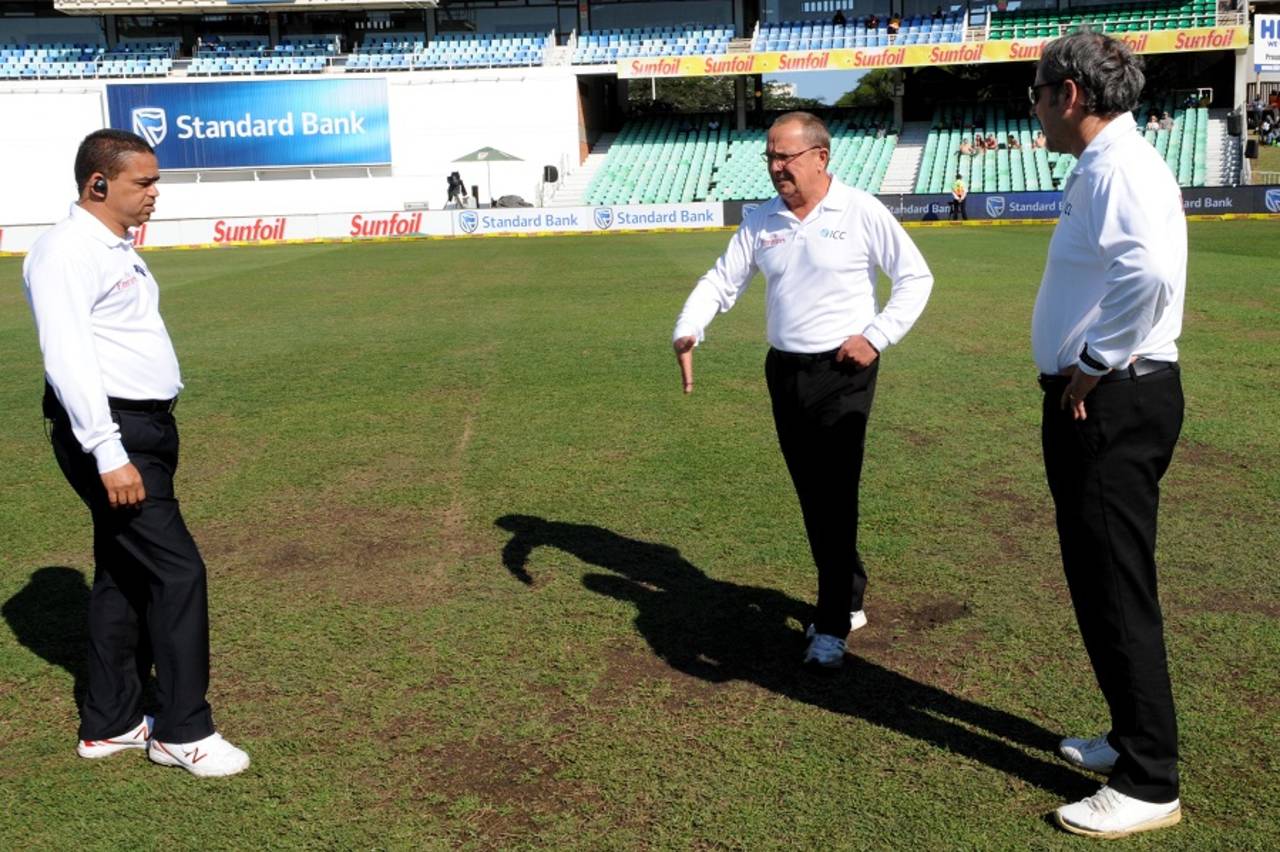Kingsmead has come under intense scrutiny after eight of nine sessions in South Africa's ongoing Test against New Zealand were lost over three days, making the chance of a result, other than a draw, implausible. No play took place on days three
and four, despite there being no rain since early on the third morning because soft patches on the recently relaid outfield were deemed unsafe for play.
Both days saw a similar sequence of events: inspections at mid-day and 2pm and an abandonment by 2:20pm. The groundstaff were instructed not to use any artificial means of drying the outfield and no one was allowed on the surface at any time on both days. To an observer, it would seem little effort was being made to make conditions suitable for play.
On Sunday morning - the third day of the Test - after the ground had taken 65mm of rain, the super-sopper was made to stop operating for fear it would do further damage to the soft patches. The umpires chose to leave the drying process to natural elements. Bright sunshine on Sunday and heavy winds of up to 70kph, albeit under overcast skies on Monday, were considered sufficient to firm up the patches. Conditions improved with each inspection, but not enough for play to take place.
Several other methods were also unused. The outfield was not roped or mopped and dryers or blowers were not used because the outfield was soft underfoot, not wet. Even using sawdust any earlier would prevent the natural elements from hardening the patches.
The Durban outfield has not historically been a problem but the
recent scarifying process, a result of last year's complaints by both the South African and New Zealand sides during the limited-overs series, left it under-prepared for this fixture. Work at Kingsmead began mid-June and was completed by the beginning of July, leaving just seven weeks for it to settle, during which Durban was also hit by unseasonal rain.
Flash flooding was reported throughout July and rain was also forecast for the second day of the match. Considering these factors, Kingsmead could have made efforts to procure more covers than the ones they currently have which protect the square. Buying enough covers for the entire outfield would cost an estimated R400,000 (US$30,000), an amount franchises struggle to raise, but covers could have been borrowed from clubs in the area.
The fall-out from this match means that Kingsmead will continue to struggle to maintain its reputation as one of South Africa's premier grounds. Poor crowd attendances saw the Boxing Day Test moved in 2014 and again this year to St George's Park in Port Elizabeth. Numbers during the ongoing match would not have done boosted that perception. An average of 2500 people were in attendance on days one and two, with numbers dwindling for the rest of the match. Sundays's crowd seemed promising, with some fans even walking through the gates when play was called off. They were allowed to use their tickets for Monday and Tuesday but only a few school children were at the ground in the morning and by the time play was called off, there was not a supporter in sight.
The players were also among the lesser spotted at the ground. The ACSU regulations stipulate that once they arrive at the ground they cannot leave until play is called off. For that reason, South Africa did not arrive at the ground on Sunday, but New Zealand turned up later in the day for a net session. Both teams were at the ground on Monday. Like the groundstaff, they were not allowed on the outfield. Faf du Plessis and Russell Domingo wandered over briefly before being instructed off.
The match referee Andy Pycroft declined to comment on the state of the ground but will rate the outfield at the end of the match, at which time the ICC may issue a statement. Until then, Durban remains on tenterhooks as it fights for its place among the country's elite venues.
